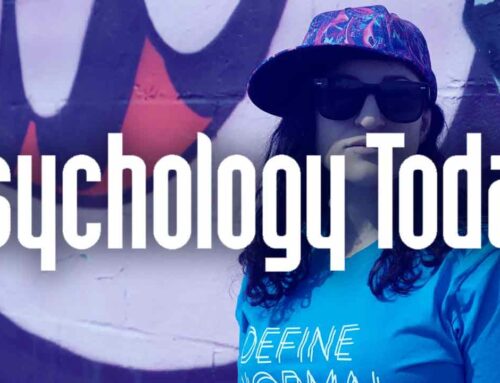Future Trends in Mental Health Care
With each passing decade, more and more emphasis is being placed on addressing the mental health needs of the public and offering accessible treatments to a wide array of people. Today, thankfully, mental health has become a big priority in healthcare and more resources are being put toward developing new forms of treatment.
Being aware of some trends that may become popular in mental health care can give one an idea of how mental health ailments will be addressed and treated in the future.
Here are some future trends in mental health care.
Teletherapy and Virtual Mental Health Services
Teletherapy is a category of telemedicine that focuses on providing mental health care to individuals through electronic technology. Typically, this involves individuals communicating with mental health professionals, such as therapists and counselors, through video calls. While community engagement is another popular form of making healthcare services accessible to various groups, remote services have proven themselves to be more convenient for many people as it pertains to mental health treatment.
This form of mental health care is rising in popularity because it makes mental health services more accessible to a wider array of people. Whereas one used to have to drive or commute to a certain location in person to receive mental health care, teletherapy allows individuals the opportunity to do so from any location.
In the future, teletherapy may tap other forms of technology, such as VR, to make remote mental health care feel more immersive while still offering the convenience of remote care. As time goes on, it is more than likely that new technology will be utilized to make remote mental health care more effective and accessible in new and novel ways.
Artificial Intelligence
Though artificial intelligence hasn’t yet entered the scene as a viable way to diagnose or treat mental health ailments, this may very well change soon. AI technology has evolved rapidly and is being applied to new challenges every single day.
One aspect of AI that would make it an incredibly useful and powerful tool for diagnosing and treating mental health illnesses is its ability to access huge amounts of data and conduct advanced data analysis in real-time. However, while there is no doubt that AI has a lot of potential in the mental health care space, it has not yet reached a level of advancement that makes it a viable or ethical mental health treatment option.
An Increase in Holistic Approaches to Mental Health Care
While holistic approaches to mental health have been around for many years, they have begun to rise in popularity in recent times. In essence, a holistic approach to health emphasizes the patient’s health as a whole rather than just specific ailments themselves.
Examples of practices that utilize a holistic approach to mental health care include art therapy, which allows individuals to use their bodies to express inner emotions, and mindfulness, which allows individuals to examine how they’re feeling both physically and emotionally.
As practices such as mindfulness have become more popular among the public, so has the idea of using a holistic approach to mental health care. In the coming years, it seems like holistic approaches will continue to become more popular and evolve in exciting ways.
Psychedelics and Mental Health Therapy
In the middle of the twentieth century, many studies were being conducted to assess the effects of psychedelic drugs in various clinical settings. Unfortunately, due to laws that banned many drugs at the same time, the majority of this testing stopped abruptly. In recent years, however, there has been a renewed interest in the application of psychedelic drugs in mental health treatments and studies have begun to show them as beneficial in some contexts.
Psychedelics have been shown to be effective in helping individuals overcome trauma-related mental illnesses, depression, and other mental health ailments. As mental care moves into the future, it seems likely that psychedelic drugs will become a more widely utilized tool among mental health professionals.
A Rise In Workplace Mental Health Resources
In today’s fast-paced world, many individuals view their work as a major source of stress. For many of these people, these negative feelings become more severe at times and manifest themselves in feelings of anxiety, burnout, and even depression. In response to this, many organizations may take action and begin initiatives to provide accessible mental health care resources to their employees to avoid these outcomes.
While organizations typically have HR representatives which employees may vent grievances to, these professionals don’t have the same training as mental health professionals such as therapists. This being the case, it would not be surprising if many organizations begin to hire mental health professionals soon to ensure that any employee in need of care has access to it.
Utilizing Technology to Monitor Patients
As technology has advanced, so too have the applications they are used for. Though it has not yet become commonplace, many believe that mobile devices, such as smartphones, can be used as monitoring devices for mental health professionals.
In essence, smartphones would have some sort of app that tracked the typical behaviors of its user. If these behaviors abruptly changed, a mental health professional treating the individual would be notified. In this way, medical health professionals would be allowed to intervene before anything too drastic happens. Given the fact that this technology is readily available in all smartphones, it may not be long before this becomes a commonly implemented practice among mental health professionals.
Mental Health Care Is Evolving with the Times
Much like other forms of medical care, mental health care is evolving in profound and powerful ways. From utilizing new technologies to make care more accessible to taking advantage of psychedelics in treating patients, mental health care is going through an exciting transformation.
While no one can be certain which trends will rise to the top and become the most popular, most are quite sure that the future of mental health care will be quite advanced and powerful compared to treatments today.





